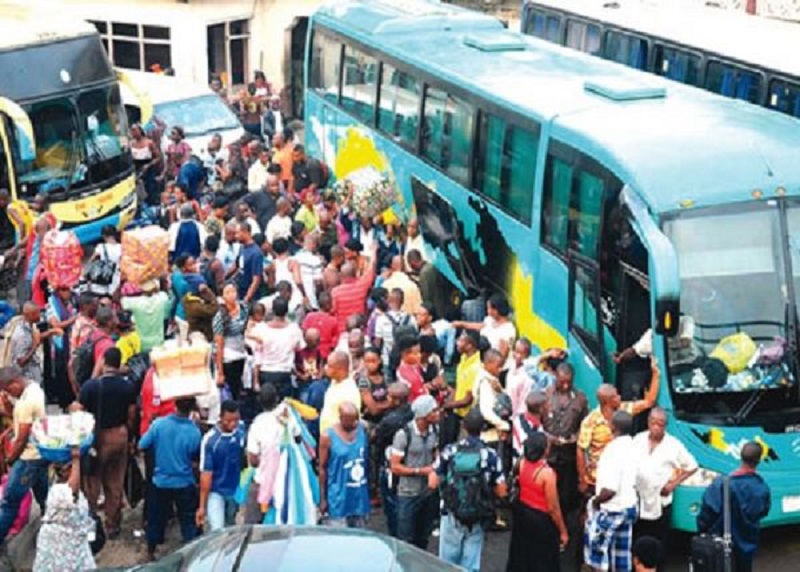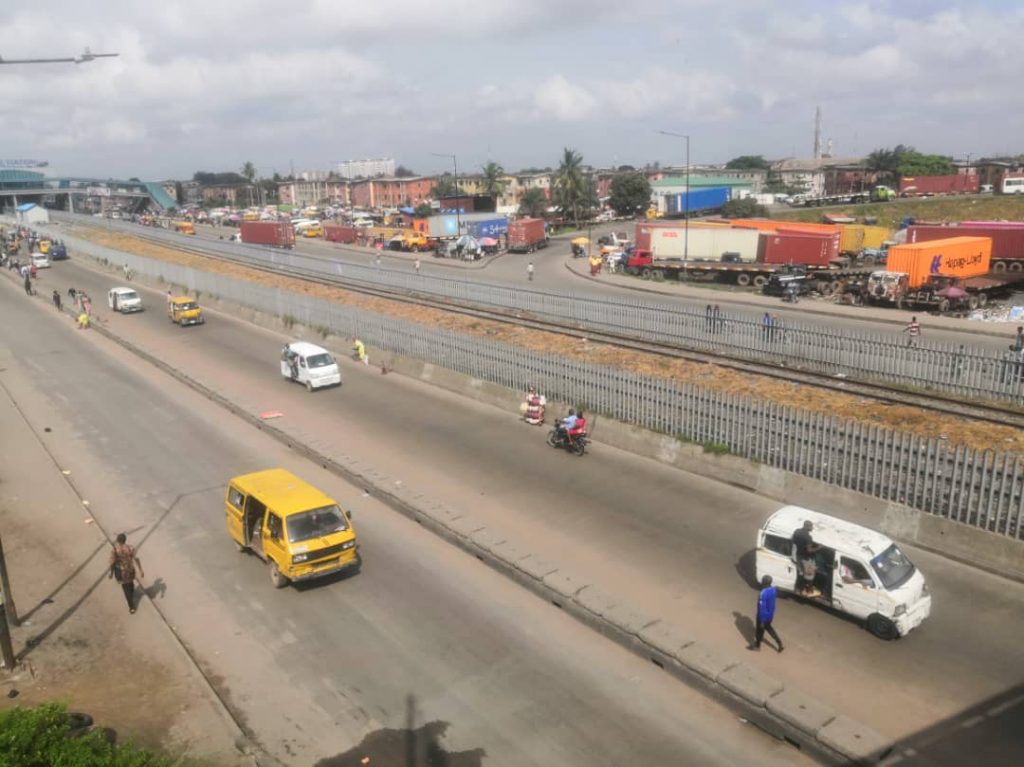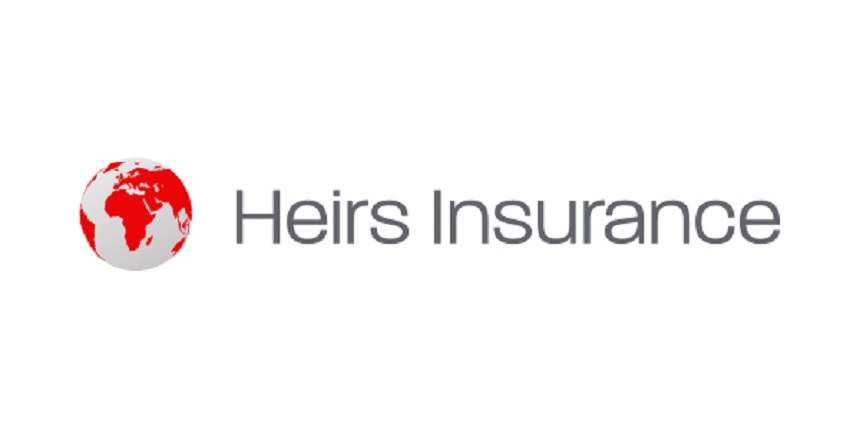Auto
Cost of Bus Transportation in Nigeria Rises 50% in One Year

By Ashemiriogwa Emmanuel
The average bus fare paid by commuters for journeys within cities across states of the federation increased by 50 per cent year-on-year to N430.58 per drop constant route in August 2021 from N286.99 in the same time of last year.
According to the latest report from the National Bureau of Statistics (NBS), the cost of bus transportation also increased by 5 per cent month-on-month from N410.2 in July 2021.
A look at the price watch for individual states showed that residents of Zamfara and Bauchi States paid the highest average fare for bus Journey within cities during the review period at N670.3 and N635.1 per drop constant route respectively.
This was followed by Taraba State where commuters paid approximately N550.1 on average for bus transportation within cities in the state.
In contrast, Oyo State recorded the lowest average price during the reference period as people paid N220.5 to move by bus from one city to another within the inland state of southwestern Nigeria.
Behind this were Abia and Borno States where the average cost of the bus transport service stood at N239.4 and N297.2 respectively.
Similarly, the average fare paid by commuters for bus journeys from one city to another (intercity) also went up by 1.8 per cent month-on-month to N2,588.7 in August 2021 from N2,542.95.
According to the data, the state with the highest bus journey fare intercity within the period was the Federal Capital Territory, Abuja where people paid N4,700.1 to travel to another city.
This was followed by Lagos and Sokoto where it recorded an average price as high as N3,600.0 and N3,450.2 respectively, while the lowest average cost was recorded in Bayelsa (N1,859.36), Bauchi (N1,900.60), and Akwa Ibom (N1,950.20) accordingly.
Air Transportation
According to the stats office, the average price paid by air passengers went up by a marginal 0.1 per cent month-on-month within the period to N36,805.41 for specified routes single journey in August from N36,793.24.
This also showed a 0.53 per cent year-on-year increase from N36,611.2 published for the same time last year.
The report showed that Rivers and Edo States recorded the highest average cost of air travel at N38,900 and N38,500 respectively, which was followed by the country’s largest economic hub, Lagos where it cost N38,200.
However, the lowest airfare was recorded in Akwa-Ibom at N33,100, Sokoto at N33,700, as well as and Gombe at N35,200 according to the order of listing.
Motorcycle Transportation
Observing the price watch for motorcycle transportation in the country, it the average fare paid by commuters per drop increased by 3.2 per cent month-on-month to N303.25 in August 2021 from N294.02.
On a year-on-year basis, it also went up by 54.2 per cent from N196.7 it cost last year.
In addition, commuters in Yobe who opted for motorcycle transportation within the period paid the highest average at N500.5 per drop. Behind this were Lagos and Taraba state where it cost N487.2 and N465.1 respectively.
However, it was paid for at the lowest in states like Adamawa at N107.1, Niger at N180.1, as well as, Katsina at N180.3 per drop.
Waterway Transportation
The average fare paid by people who travelled by water within the period under review similarly increased by 1.9 per cent month-on-month to N848.2 in August 2021 from N831.97, marking a 23.6 per cent year-on-year increase from N686.7.
The fare for waterway transport recorded the highest average in the southern part of the country, particularly in the oil-producing state, Delta at N2,550.5, followed by Bayelsa at N2,500.47, and Rivers at N2,300.1.
On the other hand, passengers paid the lowest waterway transport fare within the period in states such as Borno (N270.64), Kebbi (N360.11), and Taraba (N380.20).
Auto
Lagos Wants Fewer Cars on Roads to Drive Growth

By Adedapo Adesanya
The Lagos State Government has reiterated its commitment to creating an eco-friendly state with fewer cars on the roads in the future.
The Lagos State Commissioner for Transportation, Mr Oluwaseun Osiyemi, said this during a presentation at the closing of the fifth Lagos Real Estate Marketplace Conference and Exhibitions in Lagos.
Mr Osiyemi said that the commitment is in line with the T.H.E.M.E.S Agenda of Mr Babajide Sanwo-Olu’s led administration, expressing concerns that traffic congestion costs the state trillions of Naira in budget deficits annually.
The transportation commissioner noted that the heavy reliance on road transportation, which accounts for 90 per cent of travel in Lagos, is unacceptable and unsustainable.
The Commissioner stated that water and rail transportation account for only two per cent of the means of transportation, highlighting their gross underutilisation.
Mr Osiyemi emphasised that every sector in the state must be robust enough to contribute significantly to the wellbeing of its residents, as Lagos accounts for 30 per cent of the nation’s gross domestic product.
He expressed the state’s readiness to maximise the use of intermodal transportation system, to help upscale socio-economic activities in the metropolis and reduce man-hour loss to traffic.
In a panel discussion, the Special Adviser to Governor Sanwo-Olu on Climate Change and Circular Economy, Ms Titilayo Oshodi, emphasised the need for the state and its stakeholders to adopt a purposeful approach to waste management.
Ms Oshodi highlighted the importance of a circular economy in recycling, repurposing and reusing waste effectively.
She noted that several policies were already in place in the state for managing waste, urging producers and manufacturers across various sectors to collaborate with the state government to contribute to carbon reduction efforts.
Other panellists including Ms Stella Okengwu, Chief Executive Officer of Winhomes, said that the current economic situation calls for housing to be built based on clear demand that aligns with people’s budgets while Mr John Oamen, Co-founder of Cutstruct, urged the state government to promote the digitisation of construction procurement.
This, he added, would enhance the efficiency and practices of the construction and real estate sectors.
Auto
Heirs to Introduce Low-Cost Motor Insurance

By Modupe Gbadeyanka
There are plans by Heirs Insurance to introduce insurance products tailored for vehicle owners, a statement from the underwriting firm has disclosed.
According to the subsidiary of Heirs Holdings, this low-cost motor insurance package known as the Flexi Comprehensive Motor Insurance Plan will provide the benefit of a comprehensive motor insurance plan for a fraction of the cost, addressing the financial realities many Nigerians face.
The underwriting company announced the plan to introduce this package as it launched a new campaign designed to reward its customers.
This initiative themed Unwrapping Smiles will bring hope to individuals, families, and communities this holiday season, and will run from December 10 to December 31, 2024.
It will feature community-focused outreaches, including Christmas gifts and exciting rewards to put smiles on the faces of Nigerians. It will also include the launch of a holiday-watch web film known as The Underwriters for all Nigerians to enjoy.
“At Heirs Insurance Group, we are committed to providing much more than insurance. In a season when many Nigerians seek hope and reasons to smile, we are proud to offer initiatives that inspire and uplift,” the Chief Marketing Officer of Heirs Insurance, Ms Ifesinachi Okpagu, said.
Auto
FG Claims Investments in Presidential CNG Initiative Now $450m

By Adedapo Adesanya
Nigeria’s Presidential Compressed Natural Gas Initiative (PCNGi) claims that investments in championing the CNG value chain have hit $450 million.
This was disclosed by Mr Michael Oluwagbemi, Project Director and Chief Executive Officer (CEO), PCNGi, during the 9th Edition of the Nigeria Energy Forum (NEF2024) Day 2, Virtual Event themed Energising Sustainable Industrialisation.
According to the PCNGi CEO, the amount goes into things like mother stations, daughter stations and refuelling stations as well as conversion centres which are starting to spring up across the nation.
Mr Oluwagbemi, represented by Mr Tosin Coker, the Head of Commercial, PCNGi, said the initiative had successfully converted more than 10,000 vehicles from petrol to CNG.
“By 2027, the initiative will have converted more than one million vehicles using petrol to CNG,” he said.
On incidents of explosion of vehicles using CNG, the CEO assured Nigerians that it had taken precautionary measures with different agencies of government to ensure safety.
Mrs Ibironke Olubamise, National Coordinator of the GEF Small Grants Programme (SGP), managed by UNDP, said the SGP was investing in youth energy innovation for economic growth and environmental sustainability.
Mr Daniel Adeuyi, NEF Group Chairman, said, “The event featured three super sessions on Energising Industrial Revolution, Community Climate Action by GEF-SGP UNDP and Clean Energy Innovations.
“The sessions are to share lessons learnt from real-life projects and build capacity of young entrepreneurs and cross-industry professionals.”
Mr Joseph Osanipin, the Director General of the National Automotive Design and Development Council (NADDC), said that the council had trained more than 4,000 auto technicians on how to convert petrol vehicles to CNG.
He said the council had started campaigns to sensitise Nigerians on the advantages of using CNG to power their vehicles.
“CNG can guarantee a cleaner environment, it is cheaper and affordable,” he said.
Mr Oluwatobi Ajayi, the Chairman and Managing Director of Nord Automobile Ltd., said the company was established to tackle the growing demand for vehicles in Africa and reduce import dependency.
He said that because of the Federal Government’s CNG initiative, the company had incorporated it into their vehicle production to meet up with the government policy.
Mr Armstrong Tankan, the Managing Director and Chief Executive Officer, Ministry of Finance Incorporated (MOFI), said that MOFI was set up in 1959 as the statutory vehicle to hold all the assets owned by the federal government.
“Today, we’ve been able to identify the assets the federal government owns and we are trying to track them.
‘We actually do have assets, not just locally but globally as well and we must establish visibility over what the federal government owns before we can start talking about managing them.
“So, we want to try to minimise the waste, minimise the overlaps and help to improve output,” he said.
-

 Feature/OPED5 years ago
Feature/OPED5 years agoDavos was Different this year
-
Travel/Tourism8 years ago
Lagos Seals Western Lodge Hotel In Ikorodu
-

 Showbiz2 years ago
Showbiz2 years agoEstranged Lover Releases Videos of Empress Njamah Bathing
-

 Banking6 years ago
Banking6 years agoSort Codes of GTBank Branches in Nigeria
-

 Economy2 years ago
Economy2 years agoSubsidy Removal: CNG at N130 Per Litre Cheaper Than Petrol—IPMAN
-

 Banking2 years ago
Banking2 years agoFirst Bank Announces Planned Downtime
-

 Sports2 years ago
Sports2 years agoHighest Paid Nigerian Footballer – How Much Do Nigerian Footballers Earn
-

 Technology4 years ago
Technology4 years agoHow To Link Your MTN, Airtel, Glo, 9mobile Lines to NIN
















